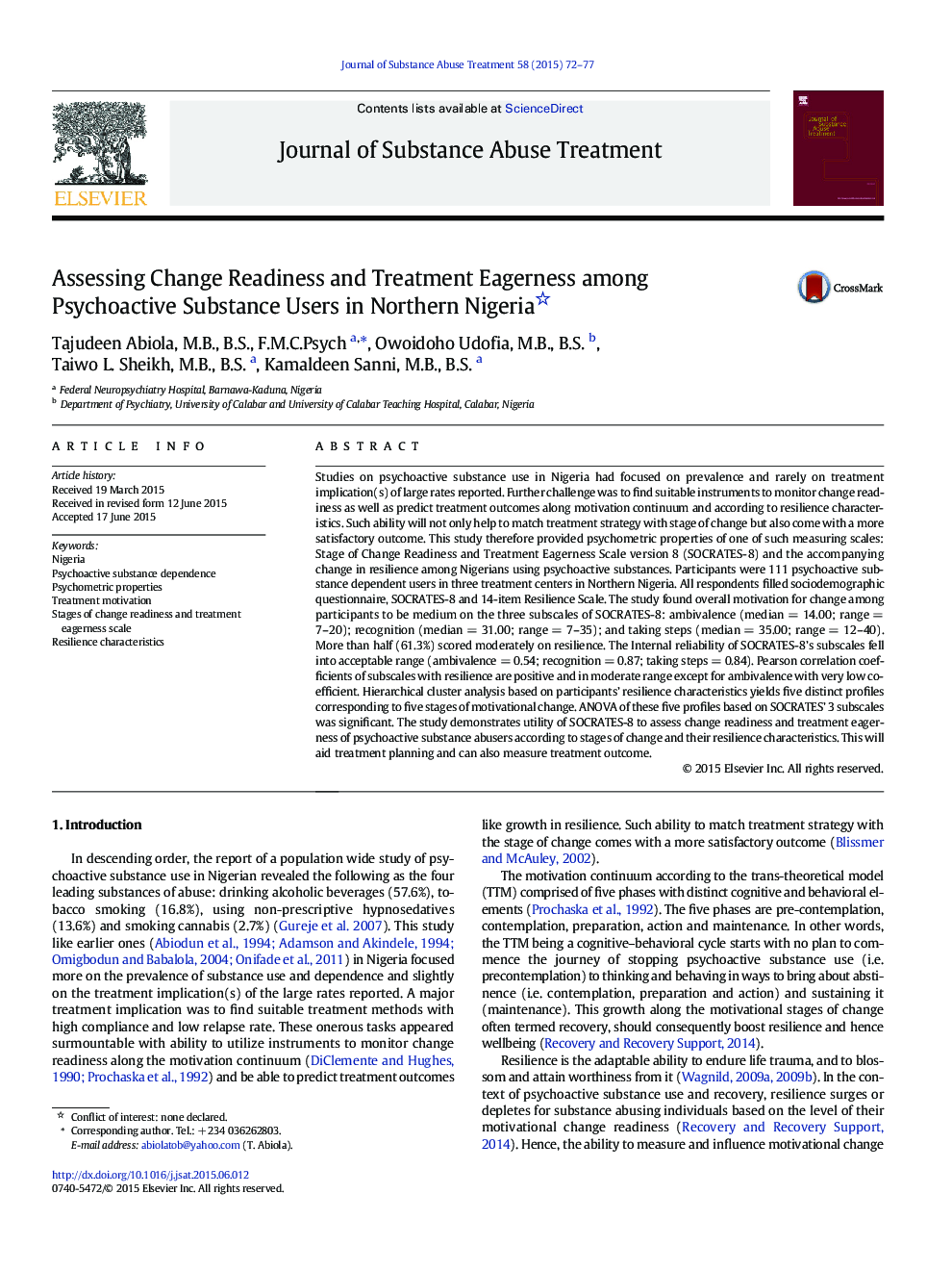| Article ID | Journal | Published Year | Pages | File Type |
|---|---|---|---|---|
| 328788 | Journal of Substance Abuse Treatment | 2015 | 6 Pages |
•We examined motivational change readiness and resilience characteristics of Nigerians dependent on psychoactive substances.•Because of its first utilization in Nigerians, we also provided the psychometric properties of the change readiness instrument: SOCRATES-8.•SOCRATES-8 shows promising psychometric properties in addiction treatment settings with great internal consistency and concurrent validity.•Cluster analysis of SOCRATES-8 yielded five distinct TTM stages of participants’ change profiles and the accompanying resilience characteristics.•Both SOCRATES-8 and resilience scale will aid treatment planning and measure treatment outcome.
Studies on psychoactive substance use in Nigeria had focused on prevalence and rarely on treatment implication(s) of large rates reported. Further challenge was to find suitable instruments to monitor change readiness as well as predict treatment outcomes along motivation continuum and according to resilience characteristics. Such ability will not only help to match treatment strategy with stage of change but also come with a more satisfactory outcome. This study therefore provided psychometric properties of one of such measuring scales: Stage of Change Readiness and Treatment Eagerness Scale version 8 (SOCRATES-8) and the accompanying change in resilience among Nigerians using psychoactive substances. Participants were 111 psychoactive substance dependent users in three treatment centers in Northern Nigeria. All respondents filled sociodemographic questionnaire, SOCRATES-8 and 14-item Resilience Scale. The study found overall motivation for change among participants to be medium on the three subscales of SOCRATES-8: ambivalence (median = 14.00; range = 7–20); recognition (median = 31.00; range = 7–35); and taking steps (median = 35.00; range = 12–40). More than half (61.3%) scored moderately on resilience. The Internal reliability of SOCRATES-8’s subscales fell into acceptable range (ambivalence = 0.54; recognition = 0.87; taking steps = 0.84). Pearson correlation coefficients of subscales with resilience are positive and in moderate range except for ambivalence with very low coefficient. Hierarchical cluster analysis based on participants’ resilience characteristics yields five distinct profiles corresponding to five stages of motivational change. ANOVA of these five profiles based on SOCRATES’ 3 subscales was significant. The study demonstrates utility of SOCRATES-8 to assess change readiness and treatment eagerness of psychoactive substance abusers according to stages of change and their resilience characteristics. This will aid treatment planning and can also measure treatment outcome.
